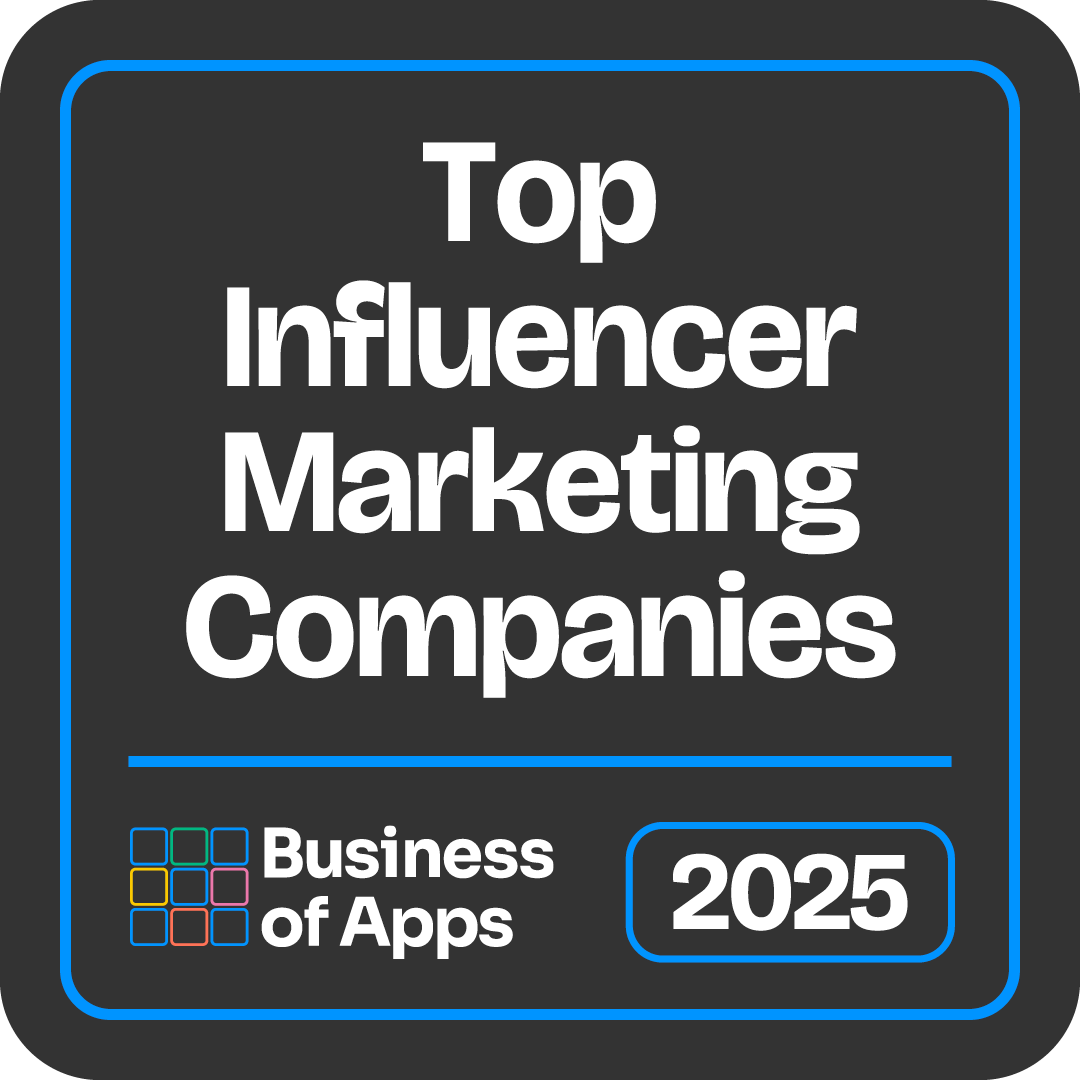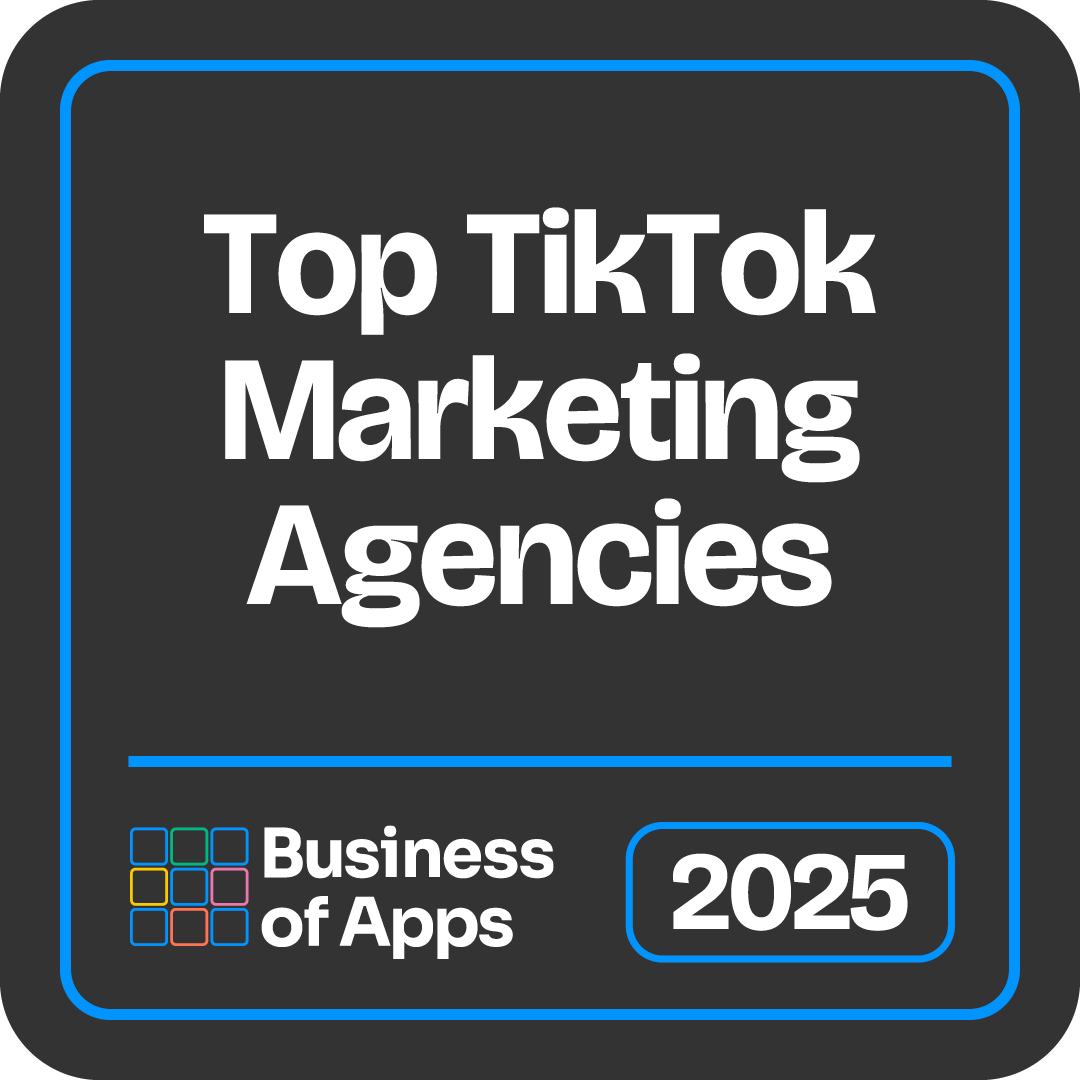
The journey of transforming your digital store into a thriving ecommerce powerhouse is incomplete without harnessing the power of email marketing. It’s a golden opportunity to retain the hard-earned traffic to your store. Most new visitors might not return, but with a robust email marketing strategy, you can keep them engaged and interested. If your online store hasn’t embraced this crucial tool yet, it’s time to reconsider. Email marketing isn’t just about sending emails; it’s about creating meaningful connections and ensuring that every visitor counts.
Email marketing for ecommerce isn’t just another task on your to-do list; it’s an essential element of your marketing mix that promises remarkable returns. With the right approach, you can turn your email list into a goldmine, driving sales, enhancing customer loyalty, and building a strong community around your brand. It’s economical, efficient, and incredibly effective at keeping your brand at the forefront of your customers’ minds. Dive into the world of ecommerce email marketing, and let’s unlock the full potential of your digital store together.

At its core, ecommerce email marketing is about connecting with your audience in a way that feels personal and relevant. It’s an art and a science, blending creativity with analytics to send the right message, to the right person, at the right time. This strategy not only boosts engagement but also significantly increases conversion rates, making it a must-have in your ecommerce tool kit.
The essence of ecommerce email marketing lies in its ability to segment and personalise. By categorising your subscribers based on shared characteristics, behaviours, preferences, or demographics, you ensure that each message is tailored and relevant. This meticulous approach enhances engagement and, crucially, drives higher conversion rates, making email marketing an indispensable tool in the ecommerce domain.
Email marketing in ecommerce opens a realm of possibilities for engaging and retaining customers. Its strategic implementation not only enhances your relationship with customers but also significantly boosts your bottom line through improved conversion rates.

Ecommerce businesses have a powerful tool at their disposal with email marketing. It allows for the sending of personalised emails to promote products, services, and offers directly to their customers. From abandoned cart reminders to personalised recommendations, email marketing serves as an economical yet highly effective way to increase sales and customer engagement.
Building customer loyalty is pivotal for ecommerce success. Through strategic email marketing, such as sending birthday emails on a customer’s birthday, businesses can significantly enhance customer engagement. These personalized touches not only make the customer feel valued but also play a crucial role in retaining them for the long term.
To craft a successful ecommerce email marketing strategy, it’s important to start with a solid foundation. This involves understanding your audience, setting clear objectives, and consistently delivering value. Your strategy should be a living document, evolving as you gain more insights into what resonates with your audience.

Identifying and leveraging key consumer touchpoints is crucial. This includes every opportunity you have to invite potential and existing customers to engage further with your brand, from your ecommerce store to social media platforms. These touchpoints are your chance to make a memorable impression and encourage customers to join your email list, offering them value in return for their engagement.
Setting clear goals and objectives is crucial for any successful email marketing campaign. By understanding what you aim to achieve, whether it’s boosting sales, enhancing brand awareness, or improving customer retention, you can tailor your campaigns for maximum impact. Knowing your email subscribers and their preferences allows for targeted and effective communication.

Increase your sales significantly by sending targeted campaigns to your email subscribers. By understanding their needs and preferences, you can craft offers and messages that speak directly to them, encouraging purchases and boosting your overall revenue.
Email marketing is a powerful tool for enhancing brand awareness and cementing customer loyalty. Sending birthday emails and celebrating a customer’s birthday are personal touches that go a long way in building a strong emotional connection with your brand, turning customers into loyal advocates.
Welcome and onboarding emails are your first opportunity to set expectations and start building a relationship with your new subscribers. They have an above-average open rate, making them a crucial part of your ecommerce email marketing strategy. These emails should introduce your brand, highlight key benefits, and guide new subscribers on what to expect next.
Birthday and anniversary emails are perfect for boosting customer engagement and personalising the shopping experience. By acknowledging these special occasions, you’re not just selling products; you’re celebrating milestones with your customers, making your ecommerce email marketing strategy more intimate and effective.

Seasonal promotions and holiday campaigns are prime opportunities to engage your email subscribers. These emails are critical components of your marketing plan, helping to navigate the buyer’s journey from awareness to purchase. Tailoring your promotional emails and transactional messages for these occasions can significantly lift sales and strengthen customer relationships.
Ecommerce stores face a significant challenge with an average cart abandonment rate that’s alarmingly high. But, here’s where cart abandonment and browse abandonment emails become game-changers. These emails get triggered when customers leave items in their cart without completing the purchase, gently nudging them to return and finalise their buy. Similarly, re-engagement emails revive interest among those who haven’t interacted with your store for a while, reminding them of what they’re missing out on. It’s a strategic move to keep your brand at the forefront of their minds.
Understanding the diverse needs of potential and existing customers is crucial in crafting emails that resonate. By identifying critical consumer touchpoints across various platforms like your ecommerce store, social media, and paid ads, you’re able to invite a broader audience to join your email list. This initial step is foundational, as it allows for the segmentation that will enable you to send highly personalised and relevant communications, enhancing the effectiveness of your email marketing efforts.

Email list segmentation is pivotal in ecommerce email marketing, allowing you to tailor your messages to meet the specific interests and behaviours of different customer groups. This practice not only enhances engagement but also significantly improves conversion rates by ensuring that each recipient receives content that’s most relevant to them. communications, enhancing the effectiveness of your email marketing efforts.
In the realm of ecommerce email marketing campaigns, personalisation is key. By utilising request emails, you’re inviting your audience to share their preferences and feedback, which in turn allows you to tailor your communications more effectively. Emails are typically structured to solicit customer feedback emails, ensuring that each message feels personal and relevant. This approach not only enhances the customer experience but also fosters a deeper connection between your brand and its audience.
Segmentation and personalisation are your best allies in boosting email open rates and conversions. By understanding your audience’s preferences and behaviours, you can craft messages that grab attention and encourage action. Tailoring your emails to meet the unique needs and interests of your segments ensures that your messages are always relevant, increasing the likelihood of engagement and, ultimately, conversions.

Adopting ecommerce email marketing best practices is essential in a world where email has increased exponentially. To stand out, you must focus on creating a unique voice for your brand and ensuring your messages are relevant and engaging to your audience. This approach helps in nurturing loyal customers and maximises the efficacy of your email campaigns.
Given that emails are opened on mobile devices frequently, the importance of responsive email design cannot be overstated. Ensuring your emails look great and function well on any device is crucial for engaging your audience effectively.

With a significant number of emails being opened on mobile devices, the emphasis on high-quality visuals and responsive design is more important than ever. Creating emails that adapt seamlessly to different screen sizes ensures that every recipient enjoys a visually appealing and user-friendly experience, regardless of how they access their inbox.
The power of dynamic content in email marketing cannot be underestimated. By ensuring that your email remains not just informative but also engaging and relevant to each recipient, you significantly increase the chances of your message resonating with your audience. Compelling copy and personalised content work together to grab attention and drive action, making them indispensable tools in your email marketing arsenal.
Employing advanced techniques like A/B testing and analytics is vital for refining your strategy and ensuring your emails consistently perform well. These methods allow you to understand better what resonates with your audience, helping you tailor your approach for maximum engagement and conversion.

A/B testing is a powerful tool for identifying the most effective elements of your email marketing campaigns. By testing different versions of your emails, you can discover what content, design, and call-to-actions your audience prefers, enabling you to continually refine and optimise your strategy for better results.
Keeping a close eye on metrics like the average open rate is essential for assessing the health of your email marketing efforts. Monitoring, analysing, and optimising these metrics allow you to make informed decisions about future campaigns, ensuring that each email you send is more effective than the last.
Implementing an efficient ecommerce email marketing strategy requires the right tools and automation. These solutions streamline the process, from segmenting your audience based on their behaviour and preferences to sending timely, relevant messages throughout the buyer’s journey. Choosing the right ecommerce email marketing software is crucial for maximising efficiency and effectiveness. communications, enhancing the effectiveness of your email marketing efforts.
Email sequences and automated follow-up emails are indispensable components of a robust ecommerce email marketing strategy. These automated processes ensure that no opportunity for engagement or conversion is missed, providing a consistent and personalised experience for each customer.

Transactional emails, such as order confirmations and shipping updates, offer a prime opportunity to engage further with your customers. By including personalised recommendations and updates about the delivery date, you can enhance the customer experience while subtly encouraging repeat business and fostering loyalty.
Automated follow-up and product recommendation emails are like having a smart assistant who knows exactly what your customers need, even before they do. These emails take cues from a customer’s purchase history and browsing behaviour to offer personalised recommendations. Imagine sending an email suggesting a pair of headphones to a customer who just bought a new phone from your store. This not only enhances the shopping experience but also boosts your sales by encouraging repeat purchases.
Selecting the right ecommerce email marketing software is crucial for the success of your ecommerce email marketing strategy. Each tool has its unique features, but the goal is the same: to help you send emails that get opened, read, and acted upon. We’ve explored various options and shortlisted the best tools to make your decision easier.
Klaviyo shines with its deep integration capabilities, especially for ecommerce platforms. It offers a wide range of email templates, designed to cater to every phase of the customer journey. From abandoned cart emails that remind shoppers of what they’re missing out on, to re-engagement campaigns aimed at bringing back dormant users. Klaviyo leverages a customer’s purchase history to send highly targeted emails. Its email marketing automation and automated campaigns are top-notch, allowing for sophisticated segmentation of email lists. Plus, with Klaviyo, you can even create Google Ads campaigns, making it a versatile tool for digital marketers.

Mailchimp is renowned for its user-friendly interface and affordability, making it an excellent choice for startups and small businesses. It offers a broad selection of email templates that can be customised to fit your brand. With features like abandoned cart emails, it helps you recover potentially lost sales. Mailchimp’s strength lies in its email marketing automation capabilities, enabling you to set up automated campaigns that send based on specific triggers. Its ability to segment email lists according to purchase history enhances the personalisation of your messages. Moreover, Mailchimp’s integration with Google Ads helps in creating cohesive marketing campaigns across different channels.

Omnisend is tailored for ecommerce, offering advanced features like the ability to send email templates that dynamically change based on a customer’s purchase history. This ensures that your messages are always relevant and engaging. While Omnisend does not have as broad a feature set as some of its competitors, it focuses on delivering quality where it matters most to online retailers. Its straightforward pricing structure makes it an attractive option for businesses of all sizes looking to enhance their ecommerce email marketing strategy.


Transactional emails are a pivotal part of the customer journey, offering timely and relevant information about their orders. From confirming a purchase to updating them on the delivery date, these emails keep your customers informed and engaged. By optimising transactional emails, you turn routine communications into opportunities for enhancing brand loyalty and encouraging repeat business. It’s an easy yet effective way to make a significant impact on your customer’s experience.
Transactional emails play a crucial role in ecommerce by keeping customers informed at every step of their buying journey. They’re not just about order confirmations; they’re an ongoing dialogue that nurtures customer relationships.
Order confirmation and shipping updates are more than just receipts; they are a reassurance to your customers that their transaction is successful and their goods are on the way. By providing clear information and a timeline, you help reduce anxiety and build trust. Additionally, these emails offer a golden opportunity to encourage repeat customers by including personalised product recommendations or loyalty program incentives.
Transactional emails are the perfect avenue for cross-sell and upsell emails. By analyzing data from customer purchase history, you can tailor these emails to include products that complement what they’ve already bought. This not only increases the value of each purchase but also enhances the customer’s shopping experience by providing them with items that truly match their interests and needs.

Specialised email campaigns, like those for birthdays or based on cart abandonment, are powerful tools in your ecommerce email marketing arsenal. They allow you to connect with your customers on a personal level, turning every email into an opportunity to strengthen your relationship and boost sales. By using email automations, you can ensure these messages are delivered at just the right moment, maximizing their impact and effectiveness.

Birthday and loyalty emails are a fantastic way to engage with your customers and show them they’re valued. These emails, driven by your ecommerce email marketing strategy, enhance customer engagement by celebrating milestones or rewarding loyalty. By integrating loyalty programs and acknowledging customer lifetime achievements, you foster a deeper connection that goes beyond the transactional, encouraging continued patronage and loyalty. effectiveness.
Cart abandonment emails are a critical component in reclaiming lost revenue. With an average cart abandonment rate hovering around 69%, these emails serve as a gentle nudge to bring customers back to complete their checkout process. By utilising browse abandonment emails and ensuring they get triggered at the right moment, you can effectively remind customers of what they’ve left behind, turning potential losses into recovered sales.

To truly understand the impact of your ecommerce email marketing efforts, it’s essential to measure their success. By keeping an eye on key marketing emails metrics, you can fine-tune your strategy, ensuring that every email sent contributes to your overall business objectives.
Understanding the performance of your marketing emails is crucial. By tracking key performance indicators (KPIs), you gain insights into the effectiveness of your email marketing efforts, allowing you to make data-driven decisions that enhance your strategy.
Email open rates and click-through rates are vital metrics that shed light on how engaging your emails are. A high open rate indicates that your subject lines are compelling enough to grab attention, while a high click-through rate shows that your email content is effective in motivating recipients to take action. Monitoring these rates is key to understanding customer preferences and refining your email marketing strategy for better results.
When you’re diving into the world of ecommerce email marketing, keeping a keen eye on your conversion rates and return on investment (ROI) is crucial. Imagine sending out an email campaign that not only gets opened by a majority of your subscribers but also leads them straight to making a purchase. That’s a direct boost to your conversion rate. But it doesn’t stop there. The beauty of email marketing lies in its ability to provide significant returns with relatively low investment. Whether you’re crafting personalised offers or sending out automated product recommendations, every email sent is an opportunity to enhance your ROI. By closely monitoring these metrics, you’re not just tracking numbers; you’re uncovering the effectiveness of your strategies and ensuring every penny spent works harder for your ecommerce success.

A/B testing, or split testing, is a crucial technique in ecommerce email marketing that involves sending two slightly different versions of an email to separate segments of your list. By comparing the performance of version A against version B, you can identify which elements resonate best with your audience. Whether it’s the subject line, the call to action, or the overall design, A/B testing provides concrete data points that guide your decisions, ensuring you’re not just guessing what works. Modern email marketing tools have simplified setting up A/B tests, making it easier than ever to optimize your campaigns for better engagement and higher sales.
Email marketing for ecommerce is a powerful tool, but it raises many questions. How often should you send emails? What content drives engagement? Utilising data-driven strategies and segmentation ensures your content is highly relevant and engaging to each recipient. This approach not only enhances engagement rates but also significantly improves conversion rates. Remember, a well-segmented email list and personalised content are key to unlocking the full potential of your ecommerce email marketing efforts.

To fuel your ecommerce email marketing success, building a robust email list is essential. Start by leveraging every touchpoint: your website, social media channels, and in-store interactions, if applicable. Offer an enticing discount or exclusive content as an incentive for signing up. Remember, the quality of your email list is just as important as its size. Engage with your campaigns by collecting email addresses of genuinely interested customers, setting the stage for effective email marketing efforts that drive sales and foster loyalty.

Finding the ideal frequency for sending ecommerce marketing emails can feel like searching for a needle in a haystack. However, the key lies in understanding your audience’s preferences and behaviours. Start with a moderate frequency, and closely monitor open and engagement rates. Use segmentation to tailor your approach for different customer groups, as some may welcome more frequent communication, while others prefer less. Regular testing and adjustments will help you find the sweet spot that keeps your customers engaged without overwhelming them.
To boost your email open and click-through rates, start by crafting compelling subject lines that grab attention. Personalisation goes beyond just using the recipient’s name; it involves tailoring the content to meet their interests and preferences. Ensure your emails are mobile-friendly, as a significant portion of users accesses their inbox on mobile devices. Incorporating A/B testing to refine your approach and including clear calls to action can significantly enhance the effectiveness of your emails, leading to higher engagement and conversion rates.
Ecommerce email marketing is evolving rapidly, driven by advancements in technology and shifts in consumer behaviour. To stay ahead, brands must embrace innovative strategies and tools that enable personalised, engaging, and timely communication with their audience. Leveraging data analytics, AI, and machine learning can help create highly targeted and effective email campaigns. By staying at the forefront of these trends, you can ensure your ecommerce brand remains competitive and continues to grow in the digital marketplace.
The landscape of ecommerce email marketing is constantly changing, with new trends emerging as technology advances and consumer preferences evolve. Staying abreast of these trends is crucial for maintaining the relevance and effectiveness of your email marketing efforts. From the integration of AI for personalised content creation to the adoption of omnichannel strategies for a cohesive customer experience, understanding and leveraging these trends can significantly enhance your ecommerce email marketing strategy.
The integration of AI and machine learning into ecommerce email marketing is revolutionising how businesses engage with their customers. These technologies enable the analysis of vast amounts of data to personalise email content at an unprecedented scale. From predicting the best times to send emails to offering product recommendations based on past behaviour, AI enhances the relevance and effectiveness of your email campaigns, leading to increased engagement, loyalty, and sales.
Embracing omnichannel marketing strategies is essential for ecommerce brands looking to provide a seamless and unified customer experience across all touchpoints. By integrating your email marketing efforts with other channels, such as social media, your website, and physical stores, you can create a cohesive brand message that resonates with your audience no matter where they interact with your brand. This approach not only improves customer engagement but also boosts brand loyalty and conversion rates.

Mastering ecommerce email marketing requires a strategic approach, focusing on personalised, data-driven campaigns that engage and convert. By leveraging the latest tools and technologies, such as AI and automation, you can create highly effective email campaigns that drive sales and build loyalty. Remember, the key to success lies in continuously testing, learning, and adapting your strategy to meet the evolving needs and preferences of your audience. With commitment and the right approach, email marketing can be a powerful growth lever for your ecommerce business.

Ecommerce excellence through email marketing is achieved by engaging customers with relevant, personalised content that drives sales and fosters loyalty. By focusing on key strategies such as segmentation, automation, and the use of dynamic content, you can enhance email deliverability and open rates. Additionally, investing in customer acquisition and retention through promotional campaigns and post-purchase emails can significantly reduce customer acquisition costs and build long-term relationships. Remember, the goal is to provide value that aligns with your customers’ purchase intent, turning them into loyal brand advocates.
In the ever-evolving world of ecommerce email marketing, a commitment to continuous learning and adaptation is crucial for success. By staying informed about the latest trends, technologies, and consumer behaviours, you can refine your strategies to remain competitive. Regularly reviewing your campaign performance, conducting A/B tests, and gathering customer feedback are essential practices that help you understand what resonates with your audience. Embrace change and be willing to experiment with new ideas to keep your email marketing efforts fresh and effective.
Email marketing remains one of the most powerful tools in the ecommerce arsenal for driving growth. By strategically leveraging email marketing, you can effectively communicate with your audience, build brand awareness, and drive sales. Automated emails, personalised content, and targeted promotional campaigns are just a few strategies that can amplify your ecommerce success. Remember, the effectiveness of your email marketing efforts is directly tied to your ability to engage your audience with relevant, compelling content that encourages action.

Think we can make magic happen together? Drop us a line and we’ll setup a call to go through your goals and explain how we can help.
Favoured relies on it’s amazing set of talented staff to achieve what we do. Think you’d like to be part of an award winning team?
Drop us a line and we’ll make magic happen









Drop us a line and we’ll make magic happen








